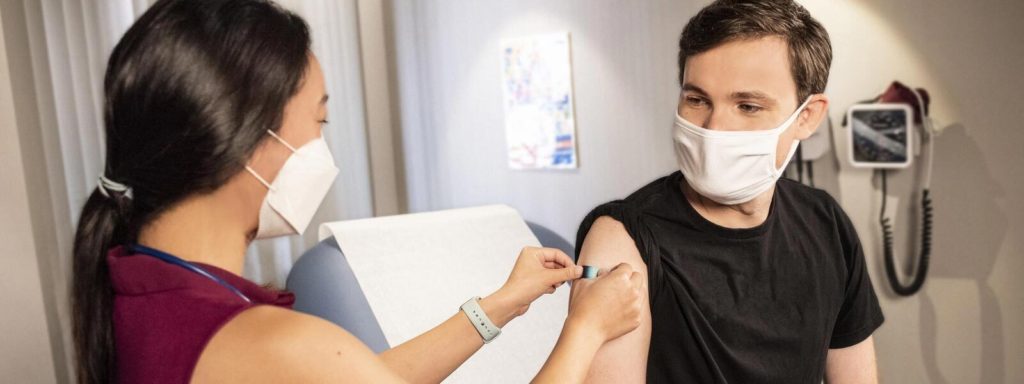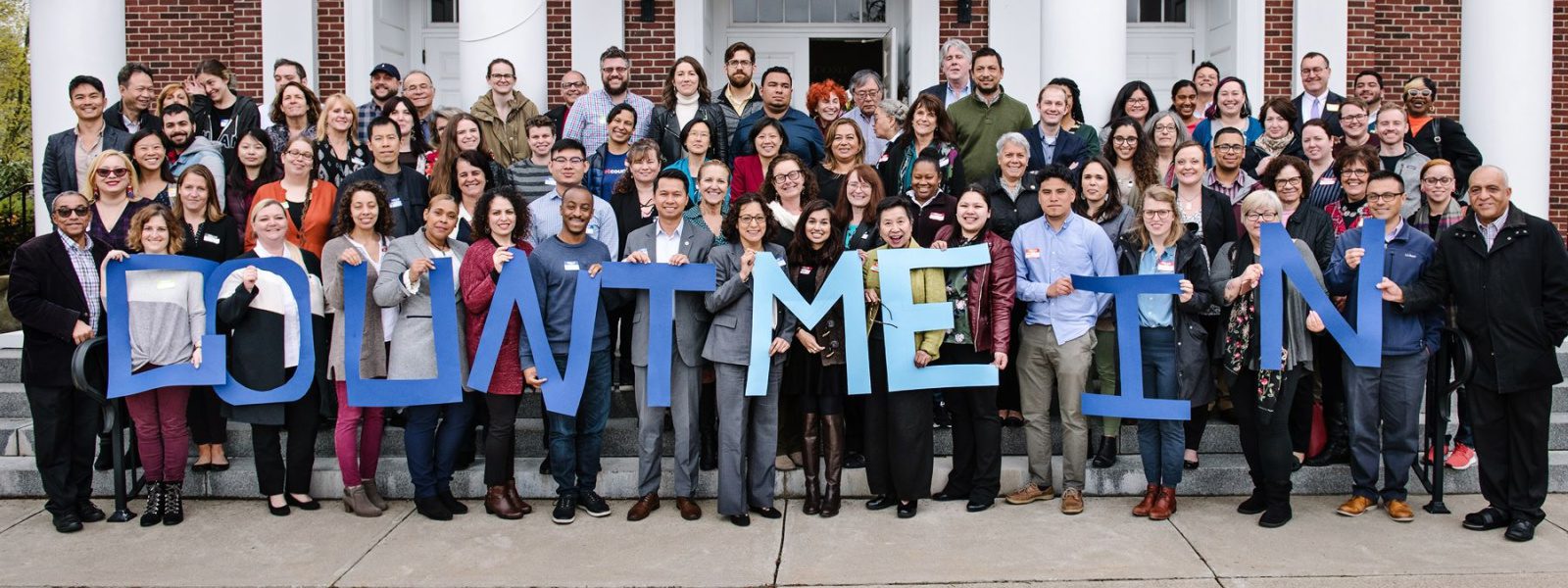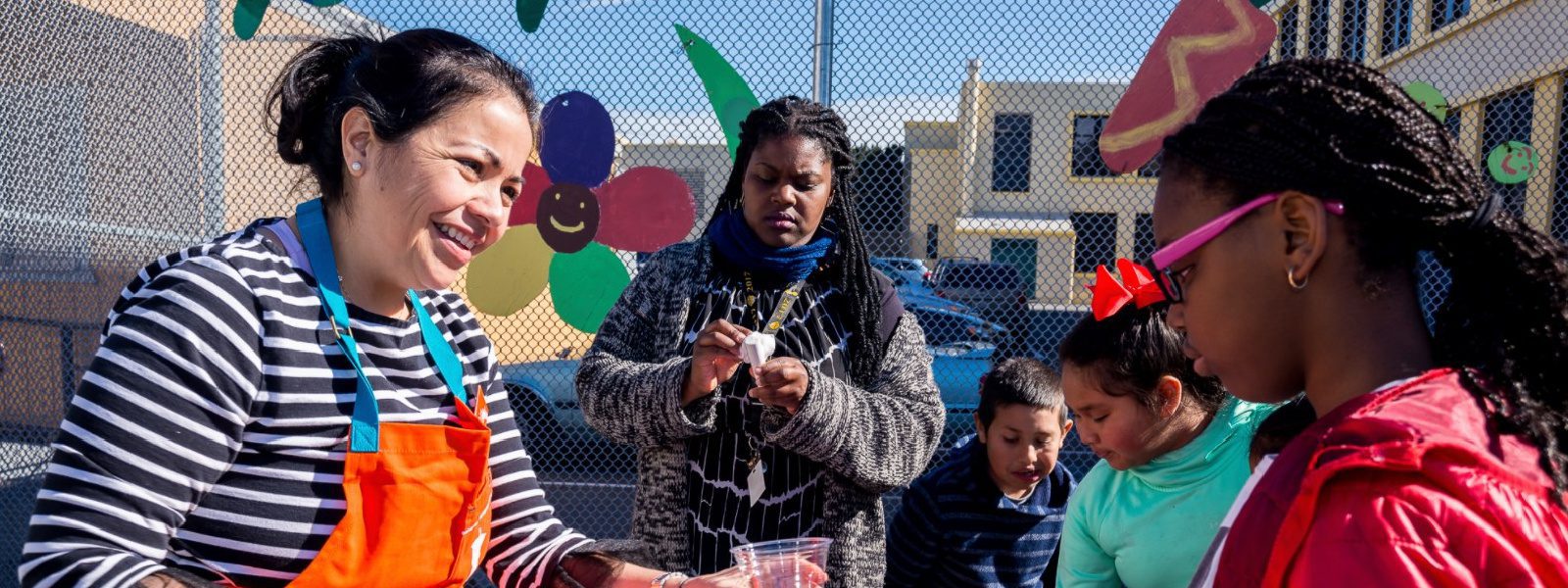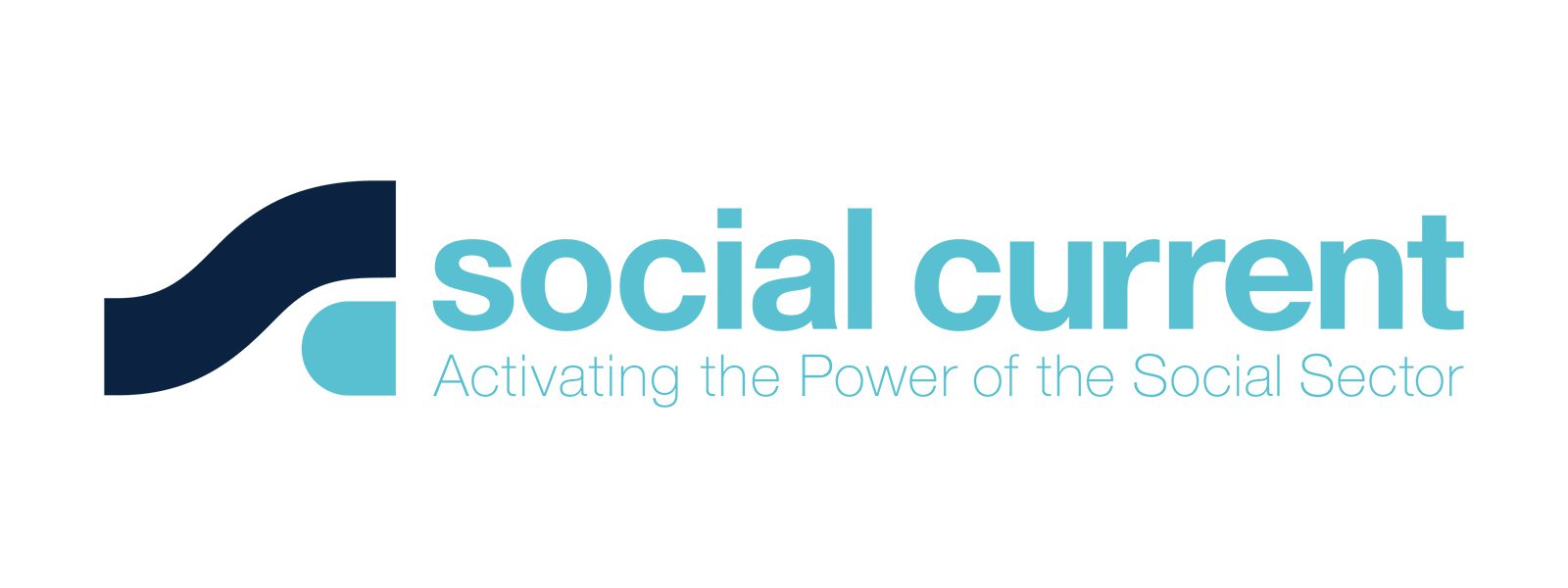The race is on to save lives in the United States as the country intensifies our fight against COVID-19 – and nonprofits are using trust they’ve built over the years, as well as multilingual outreach, collective action, and a focus on equity for healthier communities in this national effort.
The We Can Do This vaccination campaign, a month-long effort by The White House, and supported by Independent Sector, to increase rates of at least one shot for 70% for adults, ends on the Fourth of July. While the number of partially vaccinated adults in the United States has increased to 167.1 million as of June 16, which is 65% of people age 18 and older, more than 600,000 individuals in the country have died because of COVID-19. Also, at least 33 million people, or 1 in 10 individuals in the country, have tested positive.
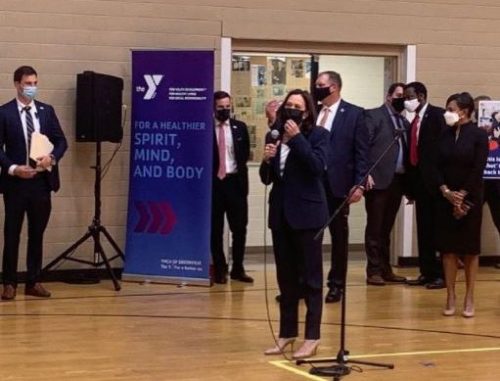
Vice President Kamala Harris visits the YMCA in Greenville, South Carolina on June 14 to talk about vaccinations, keeping people healthy, and the fight against COVID-19. Photo courtesy of the YMCA of the USA
As the U.S. slowly returns to some semblance of normal, health officials and advocates remain concerned about vaccination disparities, especially in Black and Brown communities. There are questions about access and past distrust of and racism in the U.S. health system. In Latinx communities, language and immigration enforcement concerns pose barriers to vaccination rates. Vaccination rates for Black and Brown communities, as well as some states, might even lag behind the national benchmark by the Fourth of July, according to Kaiser Family Foundation.
All of this makes outreach, support, and information dissemination efforts by the charitable sector even more important, including the United Way, Interfaith Youth Core, UnidosUS, and the YMCA of the USA.
“Our Ys are on the frontlines. We have to do this right,” says Katie Adamson, vice president of health partnerships and policy at the YMCA of the USA. “We’re trusted. We believe people would be comfortable going to a Y to get a vaccination because we are a trusted community organization that people already have a relationship with.”
As part of its effort in this month-long campaign involving the Made to Save coalition, the YMCA is working with pharmacies to support pop-up vaccination clinics, offering free child care at 500 of its branches so parents and caretakers can receive information and shots, and partnering with organizations, including AARP and the National League of Cities.
Also, the YMCA is training youth, particularly in communities of color, to conduct peer-to-peer conversations about the vaccine, the science behind it, and to listen and answer questions.
“This goes back to our core premise with why we led with equity. We were asked by African American Y CEOs to respect the history and trust that was lost in communities working with the public health system,” Adamson says.
“They asked us to do the best we could to educate Black and Brown communities, to listen to their concerns, and give trusted resources and let them make a decision but not to tell them to get vaccinated.”
As one example of outreach, Adamson says staff members and volunteers at the Battle Creek Family YMCA in Battle Creek, Michigan have helped 20,000 people get vaccinated.
On June 14, the YMCA in Greenville, South Carolina received a visit from Vice President Kamala Harris, who talked with area residents about the COVID-19 vaccine. Scot Baddley, president and CEO of the YMCA in Greenville, welcomed the visit, given the importance of health and safety.
“Vaccinations are critical to fully and safely reopening our communities and returning to normalcy. We were so honored to host the vice president and will continue to do our part to help more people in our community who want to be vaccinated get their shot,” he said in a statement. “The Y is committed to supporting equitable access to the COVID-19 vaccines for all Americans.”
UnidosUS, the nation’s largest Latino civil rights and advocacy organization, is partnering with the U.S. Centers for Disease Control and Prevention to host The Conversation, which are online discussions with Latino health care professionals. They, too, are answering questions about vaccines.
Interfaith Youth Core works in faith communities, and has published a Faith in the Vaccine playbook, which provides information and resources to its members and the public. Eboo Patel, president of Interfaith Youth Core, joined his colleagues in June to write an essay about the importance of faith and healthy communities.
“The current work is not principally about mass vaccination centers, which are closing by the day. Instead, it’s about trusted messengers reaching skeptical, uninformed, or reasonably concerned people through trusted channels,” he and his colleagues said in the essay published by Religion News Service.
“In moments of great adversity, our country can come together. People of all different religious traditions and worldviews can work across our differences for the common good.”
Independent Sector, which brings together changemakers at nonprofits, foundations, and corporate-giving programs, also is working with the Made to Save Coalition and its network of member organizations to share resources about the vaccination.
In May, Independent Sector hosted a special meeting with the White House Office of Public Engagement and U.S. Department of Health and Human Services to discuss what nonprofits can do about vaccine acceptance.
Adamson points out the YMCA also is using its years of experience as a community gathering place and in working with people on achieving health and well-being goals in this battle against COVID-19. “It’s helping people get to a place where they’re comfortable making informed decisions,” she says.
“Throughout our history Ys have always come together to address the nation’s most pressing needs, recovering from the pandemic is bring us together as a Movement to respond collectively.”
Bradley Wong is director of strategic communications and public relations at Independent Sector. The United Way, Interfaith Youth Core, UnidosUS, and the YMCA of the USA are Independent Sector members. Learn more about other Independent Sector members and becoming a member.
